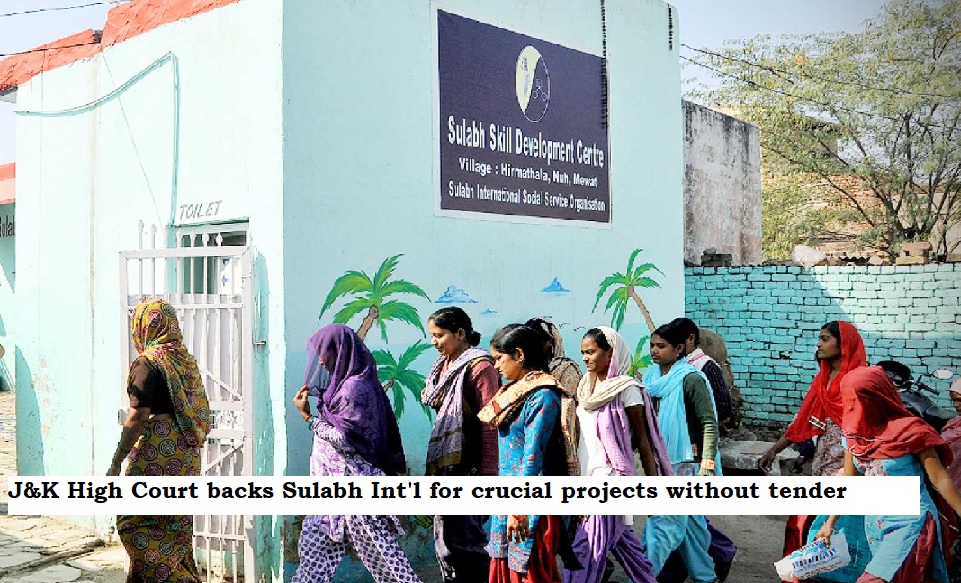


The High Court of Jammu & Kashmir and Ladakh has upheld the allocation of sanitation contracts to the well-known non-governmental organization (NGO), Sulabh International Social Service Organization (SISSO), without the customary invitation of tenders. Justices Tashi Rabstan and Rahul Bharti, constituting a division bench, contended that the process of awarding contracts is not strictly confined to a tendering framework but can also involve negotiations, taking into account the organization's qualifications and attributes.
This legal matter originated from a writ petition submitted by Saral Sugam Sewa Society (SSSO), contesting the contract allotment for constructing Sulabh Toilet Complexes in Jammu to SISSO. SSSO argued that the absence of tender issuance and auction procedures rendered the allocation arbitrary and unlawful.
The initial hearing took place before a single judge of the High Court, who, in line with legal precedents like Netai Bag vs. State of West Bengal & others, favored the petitioner. The single judge annulled the work orders and instructed the Jammu Development Authority (JDA) to issue a fresh Notice Inviting Tender (NIT).
Challenging the single bench's decision, the appellant's counsel asserted that the denial of the opportunity to file objections against the writ petition denied them a fair chance to present their case. They argued that this denial unfairly burdened the appellant with penal consequences, emphasizing that the right to file objections was never closed.
The appellant further contended that the single judge overlooked their special qualifications and the urgency of completing the sanitation projects, which were already in progress.
The division bench, upon review, noted that the single judge had neglected the ongoing construction work by the appellant and the significance of the projects for public welfare. They emphasized that the allotment of contracts is not rigidly tied to a tendering process and can be granted through negotiations, considering the unique attributes and qualifications of the organization involved.
Pointing to the special qualifications of the appellant NGO, the court recognized SISSO's extensive experience and expertise in sanitation, acknowledging it as a "special attribute" justifying direct contract allocation. They highlighted that SISSO's expertise and reputation were factors considered by the JDA in awarding the contracts.
Moreover, the bench found that the single judge had violated SISSO's right to natural justice by not allowing them to defend the allocation in the writ petition. According to the division bench, this procedural error invalidated the single judge's order.
The bench observed, "Since the appellant had not been afforded an opportunity to file objections to the very maintainability and admissibility of the writ petition, therefore, the principles of natural justice available to the appellant have been infringed."
Highlighting the societal implications, the bench stressed that projects of public importance cannot be stalled halfway, as it proves detrimental to society at large. The court noted that SISSO had already completed over 50% of the work at two sites before the writ petition was filed. Allowing them to complete these projects was deemed to be in the public interest, given the progress already made.
However, the court directed the JDA to issue fresh tenders for the remaining project at Rail Head Complex, ensuring transparency in future contracts.
TAGS: Transparency Public welfare Special qualifications Expertise in sanitation Procedural error Societal importance Rail Head Complex